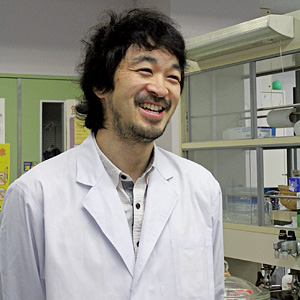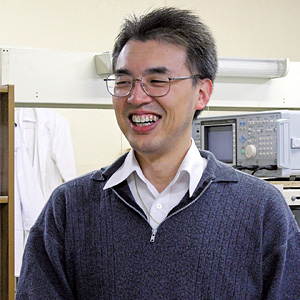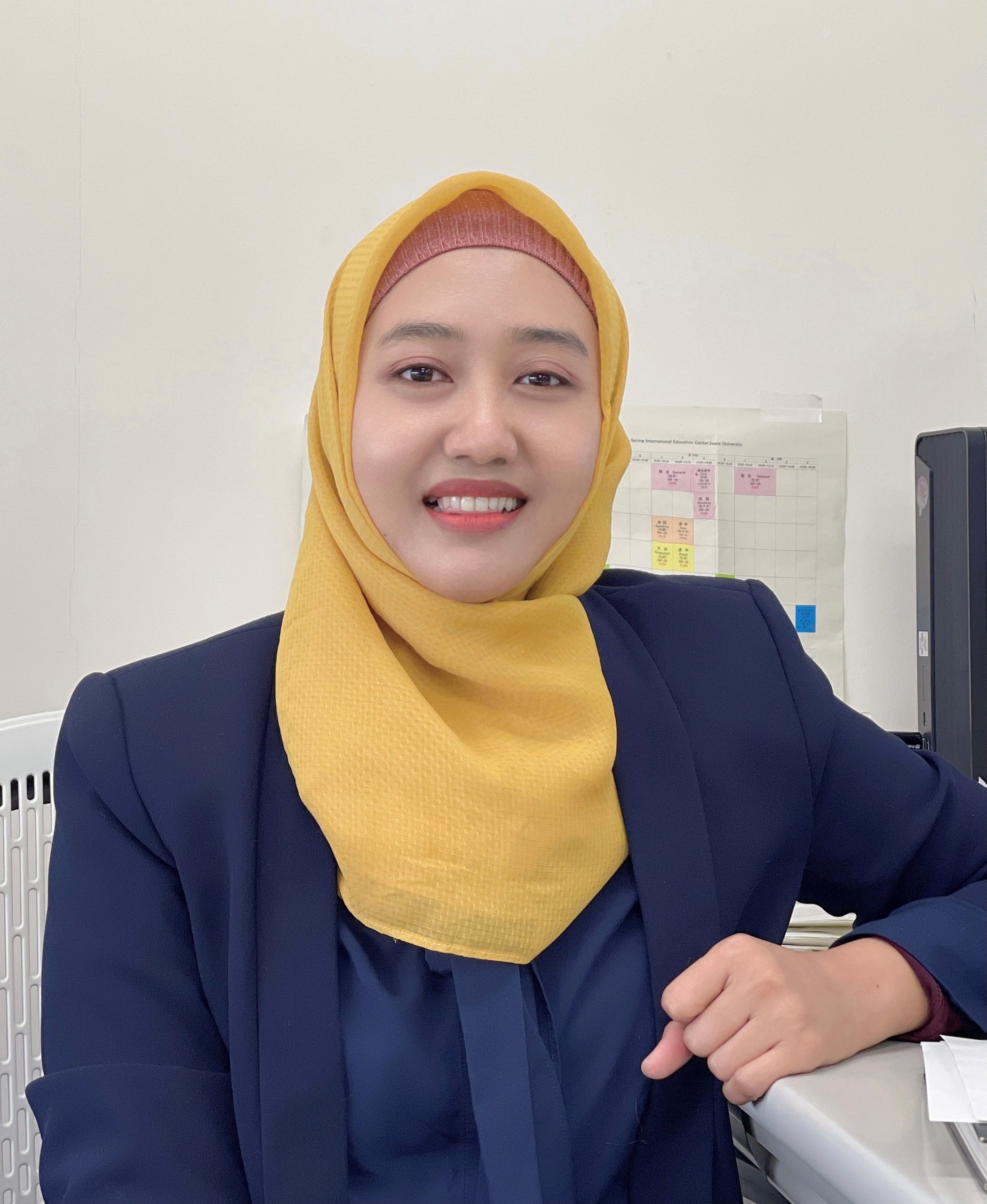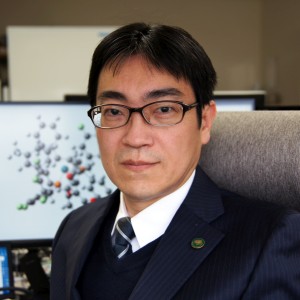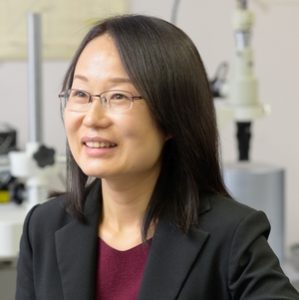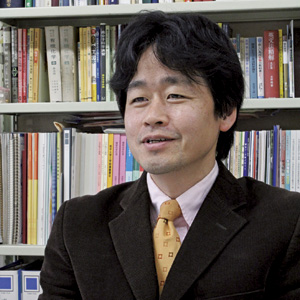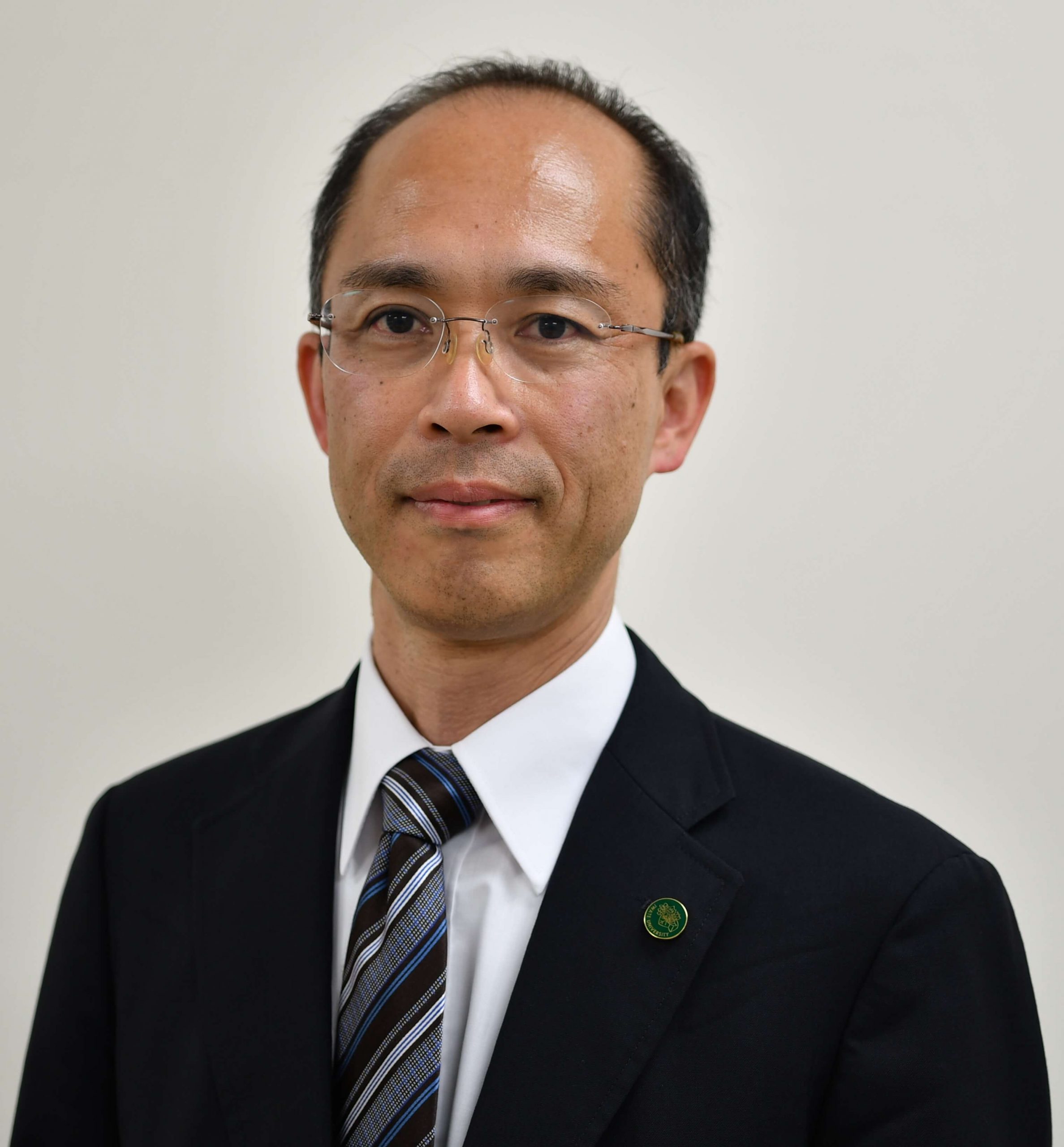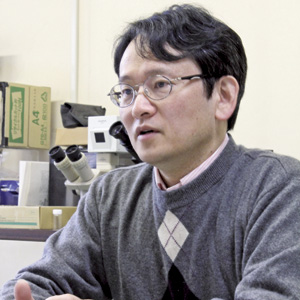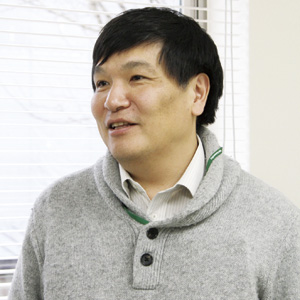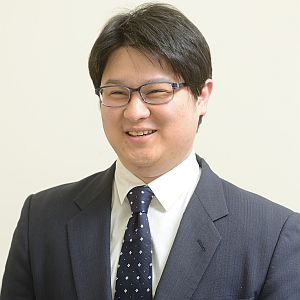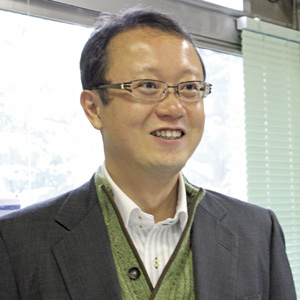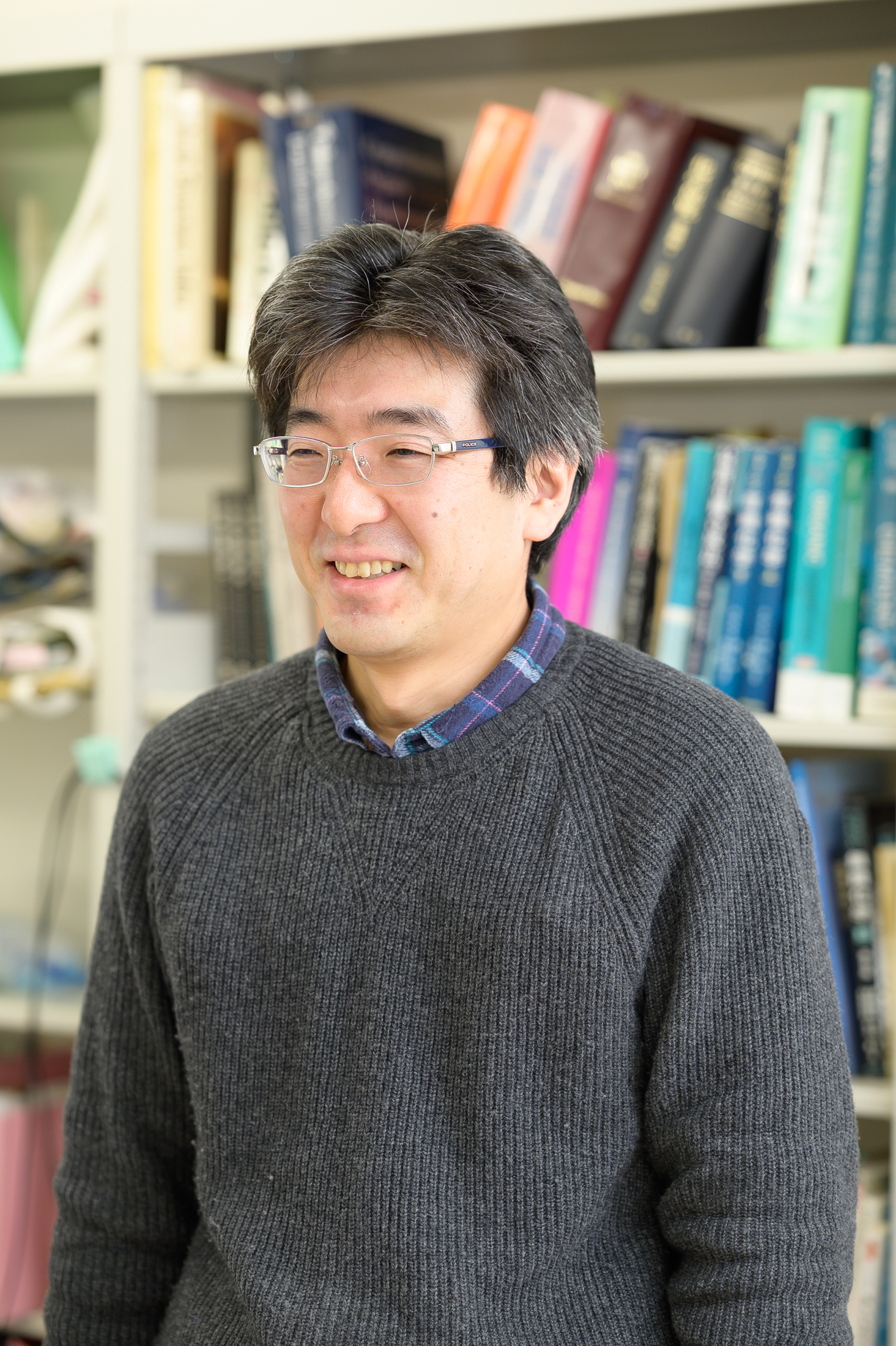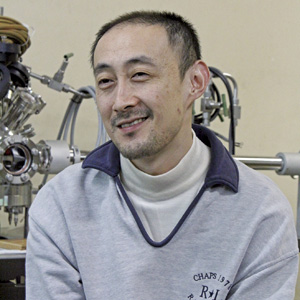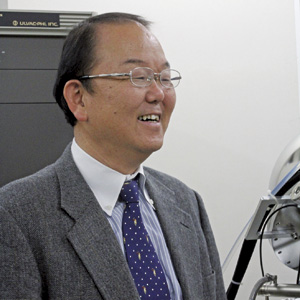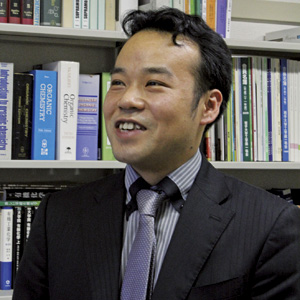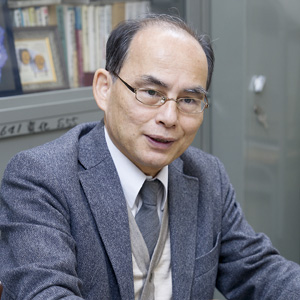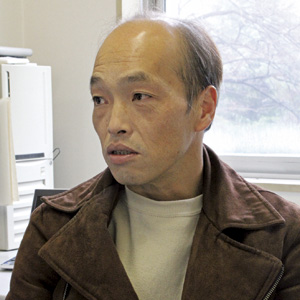Chemistry
Fostering the leaders of the chemical technology infrastructure for a 21st century society in harmony with the environment and life.
What you can learn and research in this course?
Through education and research in the three education and research fields of "Surface and Energy Chemistry" in Inorganic Chemistry, "Organic and Polymer Chemistry" in Organic Chemistry, and "Condensed Matter Chemistry and Chemical Systems" in Physical Chemistry, we foster chemical engineers and researchers who can contribute to the sustainable development of local and international society.
Field of Surface and Energy Chemistry
Based on basic knowledge of inorganic chemistry, students will study analytical chemistry, surface chemistry, electrochemistry, and environmental chemistry. We conduct education and research regarding environment-friendly functional inorganic materials, materials for batteries with high energy density, and surface function control of catalysts.
Field of Organic and Polymer Chemistry
Based on basic knowledge of organic chemistry, students will study organic reaction chemistry and polymer synthesis chemistry. We conduct education and research regarding organic chemical products, pharmaceutical products, functional polymer materials, and organic electronic materials.
Physical Chemistry and Chemical Systems
Based on basic knowledge of physical chemistry, students will study quantum chemistry, reaction engineering, and material chemistry. conduct education and research regarding the creation of useful crystals, the functional expression, maintenance, and control of structural, energy conversion, and molecular materials, and molecular structure analysis.
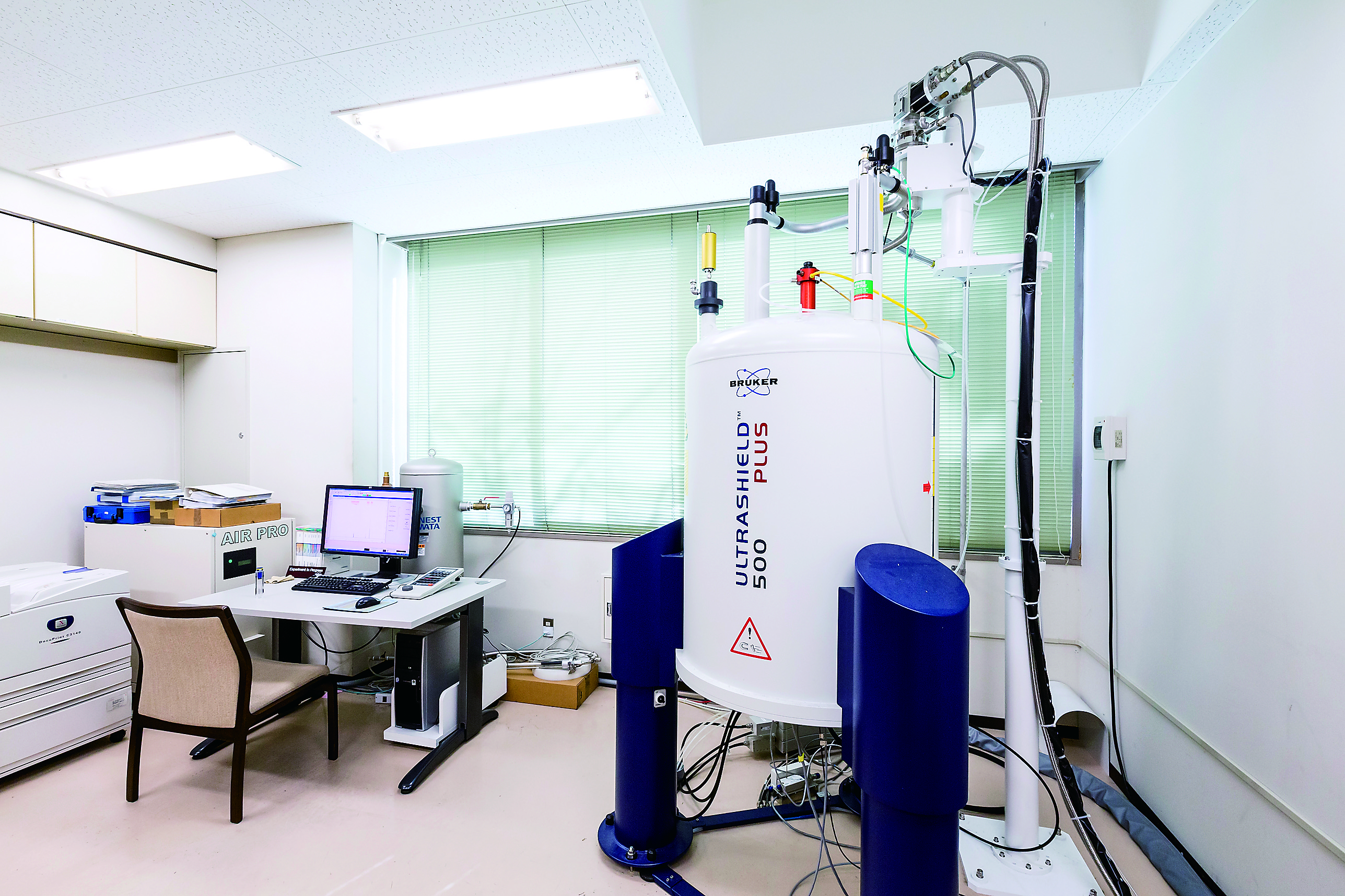
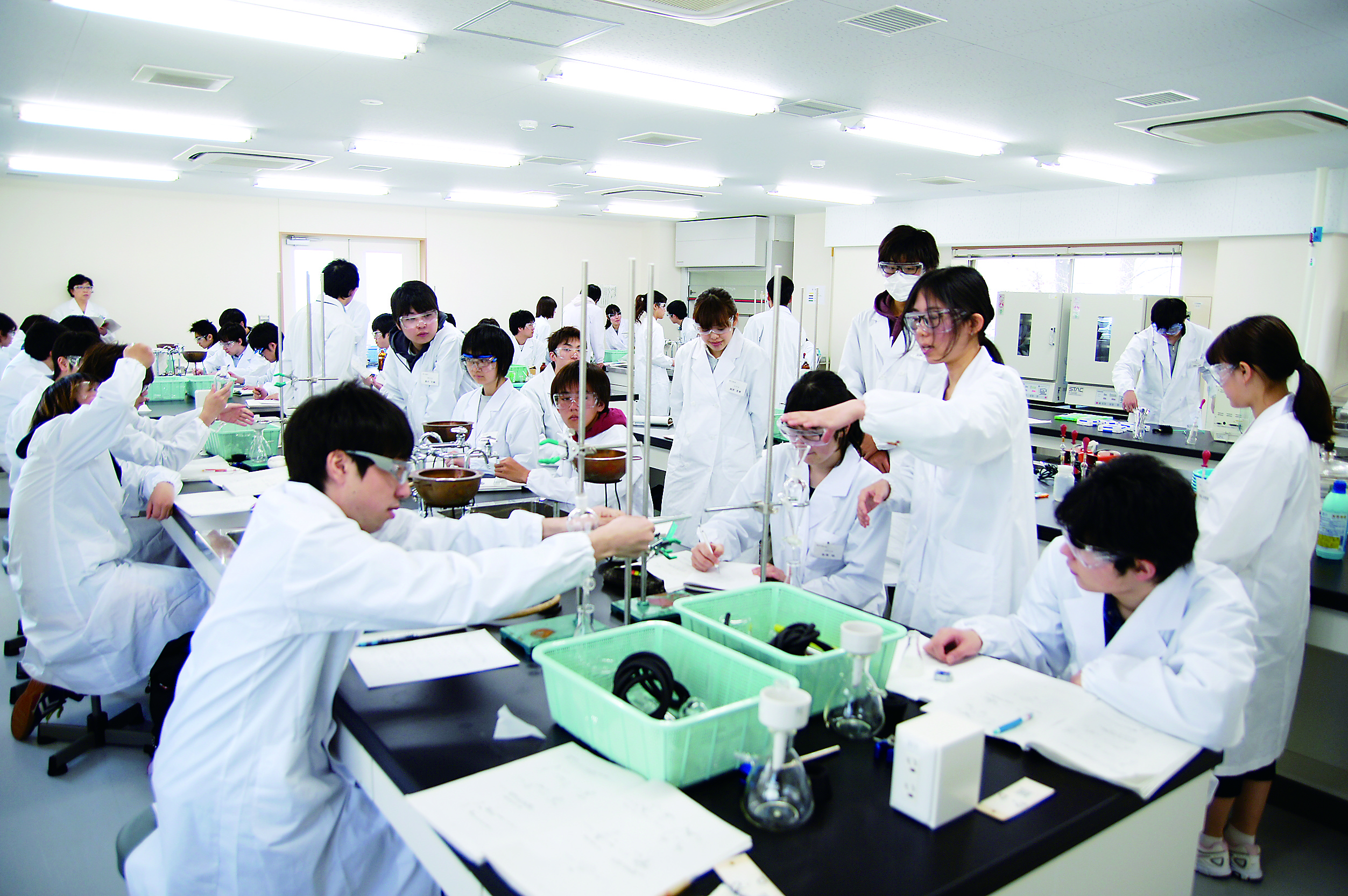
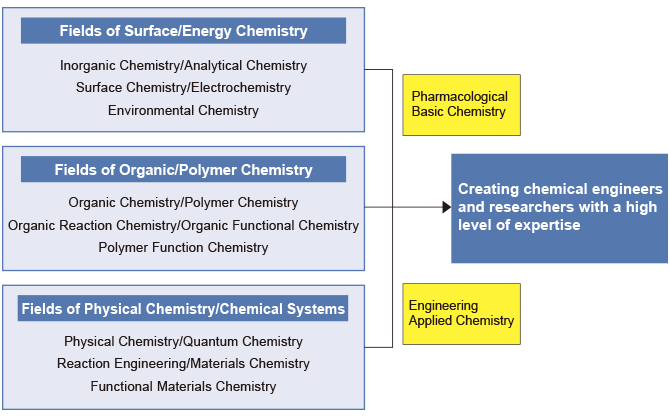
How our research can be applied to society?
Chemistry is a field that supports all industries, and the research in the Chemistry course is closely related to many industrial fields. For example, we are developing next-generation materials related to automobiles and other industrial products, and some of these technologies have actually been commercialized. We also aim to solve energy problems through research on a wide range of secondary batteries, from rechargeable batteries for smartphones to fuel cells for automobiles. We are also developing innovative molecules that will become the basis of electronic materials such as organic EL and solar cells. In the field of pharmaceuticals, we are also contributing to this field by developing pharmaceutical molecules and their construction technologies, as well as conducting process research. With regard to the much-talked-about SDGs, we are also developing environment-friendly manufacturing technologies that reuse biomass and waste plastics.
As described above, the Chemistry course is responsible for manufacturing technologies that support the Earth.

What this course looks for in students?
1.Interest and Motivation
Those with a strong interest in chemistry and related fields, a willingness to take on new challenges, and the ability to proactively work toward solving problems with clear goals.
2.Knowledge and Skills
Those with the basic knowledge of sciences and humanities necessary for studying specialized fields of chemistry, and the ability to apply it.
3.Thinking and Judgment
Those who can discover and explore issues in chemistry through a broad perspective and logical thinking, and who can make appropriate judgments and take appropriate action to solve problems.
4.Expression and Communication
Those who can accurately communicate knowledge, skills, and information in chemistry to those who need them and work to solve problems, using accurate expression and smooth communication with others.
5.Independence, Creativity and Cooperativeness
Those who can think creatively in fields related to chemistry and who can work cooperatively to discover and solve problems independently.
What kind of human resource will this course develop?
In order to foster human resources who can support the chemical industry, it is increasingly important not only to deepen expertise in engineering applied chemistry, but also to integrate it with basic science chemistry. In this course, through education and research on three fields: “Surface and Energy Chemistry” based on inorganic chemistry, “Organic and Polymer Chemistry” based on organic chemistry, and “Condensed Matter Chemistry and Chemical Systems” based on physical chemistry, we aim to foster chemical engineers and researchers who have a high degree of expertise in basic chemistry and applied chemistry and can contribute to the sustainable development of local and international society.
What kind of career path is expected after graduation?
Chemistry is not only the basis of manufacturing but also essential to the resolution of the problems of modern society, such as environmental issue, resource and energy issue, and food and water issue. Therefore, Therefore, society’s need for chemical human resources will be high, and high rate of employment is expected. Furthermore, we recommend post-graduate studies to acquire a higher level of expertise.
- Chemical
- Electronic components and devices
- Food and pharmaceutical products
- Energy and the environment
- Automobile
- Education
- Civil service
- Going on to graduate school, etc.
Curriculum
| First year | Second year | Third year | Fourth year | |
|---|---|---|---|---|
| Specialized Basic Courses |
●Basic Mathematics ●Calculus I ●Calculus Ⅱ ●Linear Algebra ●Physics I ●Physics Ⅱ ●Chemistry I ●Chemistry Ⅱ ●Biology |
○Differential Equations ○Probability and Statistics |
||
| Chemistry Course Subjects |
●Inorganic Reaction Chemistry ●Physical Chemistry Ⅱ ●Organic Chemistry Ⅱ ●Organic Chemistry Ⅲ ●Basic Macromolecular Chemistry ●Chemistry of Polymer Synthesis ●Exercises in Chemistry, Science and Engineering Ⅰ ●Exercises in Chemistry, Science and Engineering Ⅱ ○Inorganic Materials Chemistry Ⅰ ○Analytical Chemistry ○Chemical Engineering Ⅰ ○Structural Analysis of Molecules |
●Chemistry, Science and Engineering Laboratory Ⅰ ●Chemistry, Science and Engineering Laboratory Ⅱ ○Inorganic Materials Chemistry Ⅱ ○Materials Physical Chemistry ○Structural Physical Chemistry ○Selective Synthesis in Organic Chemistry ○Intramolecular Interaction in Organic Chemistry ○Industrial Inorganic Chemistry ○Hardware Analytical Chemistry ○Chemical Reaction Engineering ○Chemical Engineering Ⅱ ○Chemistry of Polymer Materials ○Organic Industrial Chemistry |
●Chemistry, Science and Engineering Information Ⅰ ●Chemistry, Science and Engineering Information Ⅱ ●Seminar in Chemistry, Science and Engineering ●Graduation Research |
|
| Common Courses within Science |
●Chemistry and Biotechnology Seminar Ⅰ ●Structural Inorganic Chemistry ●Basic Physical Chemistry ●Organic Chemistry Ⅰ ○Biochemistry ○Molecular Genetics |
●Basic Analytical Chemistry ●Physical Chemistry Ⅰ ●Quantum Chemistry ●Basic Chemical Engineering ○Introduction to Neuroscience ○Developmental Biology |
●Chemistry and Biotechnology Seminar Ⅱ ●English for Science Ⅰ ●English for Science Ⅱ ○Introduction to Chemistry and Biotechnology ○Spectroscopic Analysis in Organic Chemistry ○Medicinal Science |
|
| Common Courses within the Department | ●Introduction to Soft Path Science and Engineering |
●Ethics for Engineers |
||
|
○Introduction to Intellectual Property ○Selected Topics in Patent Law ○Nuclear Engineering ○Quality Control and Industrial Management Plan |
||||
| ○Internships | ||||
| ○Overseas Training in English for Science and Engineering | ||||
●Compulsory Subjects ○Elective Subjects
Interviews with Students
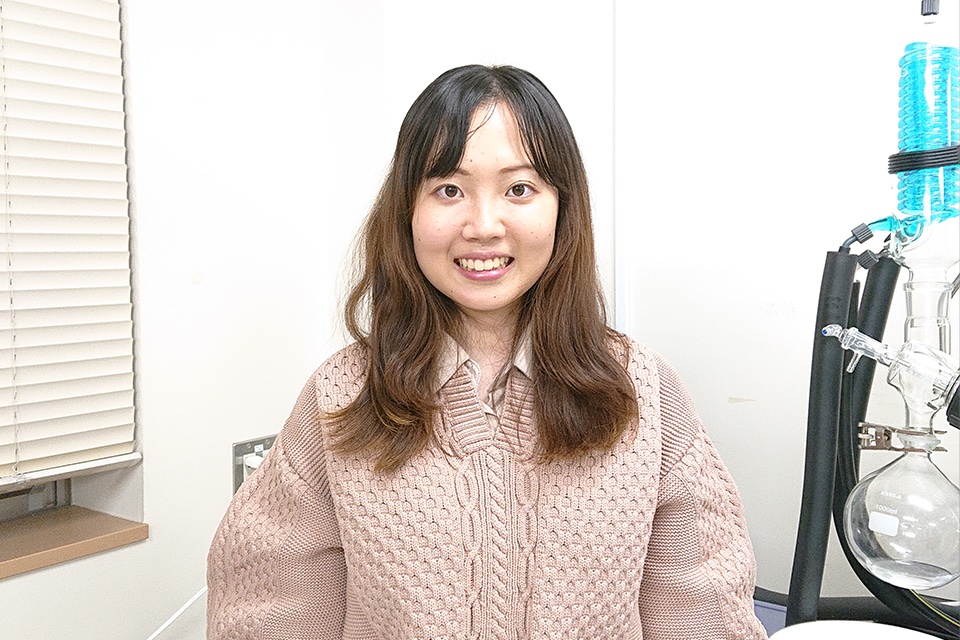
I want to apply the knowledge and skills of organic chemistry I have cultivated to the fields of agriculture and drug discovery.
TERASAWA Rio
[from Moriokakita High School, Iwate Prefecture]
I chose the Faculty of Science and Engineering at Iwate University because I felt that not only would I be able to deepen my expertise in chemistry, but I would also have the opportunity to interact with people from different fields by taking advantage of having all faculties on one campus. I belong to the research group of natural product synthesis, where natural products, potential lead compounds for the development of pharmaceuticals and agrochemicals, are synthesized in multiple steps. The greatest advantage of studying in this group is that I have the opportunity to perform various reactions and improve my synthetic skills.
Currently, I am working on the synthesis of a pheromonal natural product against "sea lampreys", an invasive species that has invaded the Great Lakes of North America and parasitizes salmon and trout. After graduation, I would like to enter graduate school to further hone my synthetic skills and elucidate the functions of that natural product and its mechanisms of action. I would like to apply the knowledge and skills in organic chemistry that I acquired in graduate school to agriculture and drug discovery.



